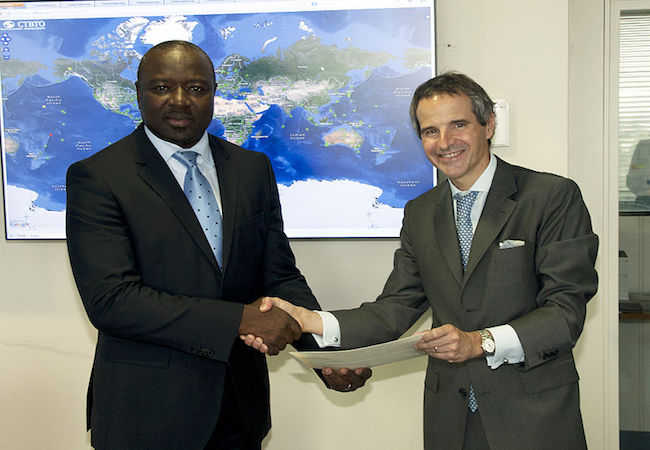
By Asma Khalid
The global community has created a multiplicity of so-called legal tools aimed at preventing nuclear weapons proliferation including legally binding treaties to voluntary agreements and regional committees, including the Nuclear Supplier Group. NSG has two sets of guidelines meticulously enlisting the nuclear materials, equipment, and technologies subject to export controls. These guidelines require the importing party to ensure that there trade shall not in any way contribute to nuclear weapons proliferation. Since the India-Pakistan’s application for NSG membership, Politics of NSG has gained massive attention of international community in few months. Aim of this piece of writing is to analyze how NSG is following discriminatory state-centric approach for inclusion of India in the nuclear cartel?
NSG membership of India Pakistan revolves around the major power politics. India has been granted the status of special waiver whereas Pakistan is facing discriminatory attitude of major powers. The most ironic aspect of this issue is that NSG was established in response of India’s nuclear explosion to stop nuclear proliferation and now its entry is being strongly supported by major powers of the group. Additionally, on 6 December 2016, Ambassador Rafael Mariano Grossi, the former chair of Nuclear Suppliers Group, presented a proposal consist of nine points for NSG membership, it has been observed by International community that these points are suitable to India but not Pakistan. If Grossi’s criteria is adopted then India can claim that it has already taken all measures according to NSG guidelines, while leaving Pakistan on disadvantage.
First point of suggestive criteria is regarding the separation of current and future civilian and nuclear facilities: under 2008 exemption India has already notified a separation plan, whereas Pakistan didn’t formally notified its separation plan to IAEA despite of having separate military and civilian’s facilities. So currently, in context of proposed NSG criteria, Pakistan is technically ineligible for NSG membership. Second point bonds that states must have enforce IAEA’s Additional Protocol: this point also suits India as it has already signed the additional protocol with IAEA. Though the nature of India’s additional protocol with IAEA is weak but it will help India to full fill the basic criteria. However Pakistan has no hesitation in signing the additional protocol with IAEA but it will take time and in this regard India has advantage over Pakistan. Another point is that candidate must committed to not conduct any nuclear explosion in future: Both India and Pakistan full fill this clause but such commitments are more like political commitment and it is not legal binding law and any member states can break their promise as India violated the IAEA safeguards in 1974. Next point is not to indulge in any proliferation activity: both India and Pakistan being responsible nuclear weapon states have been already committed to not use any item transferred.
Another salient clause is: “An understanding that due to the unique nature of the non-NPT Party applications, non-NPT applicant would join a consensus of all other Participating Governments on the merits of any non-NPT Party application.” The last clause of proposed criteria was just to project that this criteria is not state-centric and group has maintained its objective by imposing a pre-condition on India that I will not oppose Pakistan’s entry when Pakistan full filled the new criteria which is actually developed for India. But it still have major weakness as India have strong supporters in the group and they can refuse Pakistan’s membership on behalf of India as NSG works on consensus.
The analysis of Grossi’s formula presents that NSG guidelines are influenced by major powers of the groups, especially United States support to India’s membership is deeply rooted in its own geostrategic and geo-economics interests. In this regard India is given benefits and being the Nuclear Non-proliferation member, state-specific conditions are formulated to favor India. Such state-centric discriminatory policies presents that major powers use non-proliferation regimes as a tool to peruse their own interests and such dynamics really undermine the global non-proliferation efforts. Adopting Grossi’s formula and granting membership to India will be a major setback to non-proliferation regime as membership will provide it access to latest nuclear related infrastructure and technology which will enable India to commercialize the manufacturing of nuclear power plants as well as it will permit the India to enhance vertical proliferation and disturb the balance of power and regional stability. In the light of these scenarios, ideally NSG states must address the above mentioned challenges as well as complex proliferation dealings and networks of India that evade multilateral trade controls along with the most pressing issue of discriminatory approach towards Pakistan.
Asma Khalid is a Research Associate at Strategic Vision Institute, a think-tank based in Islamabad.




